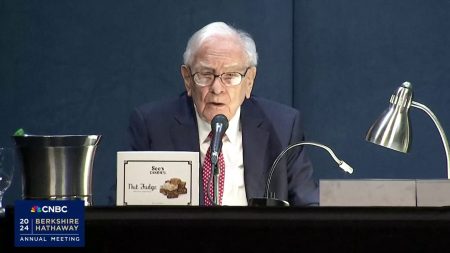Ethereum developer Consensys has filed a lawsuit against the U.S. Securities and Exchange Commission to pre-empt an expected enforcement action and seek clarification on whether the ether cryptocurrency is considered a security. The SEC had notified Consensys earlier this month of its intention to take action against the company for allegedly engaging in securities broker-dealer functions and offering unregistered securities through its MetaMask Swaps and MetaMask Staking products. Consensys is seeking to prevent the SEC from asserting jurisdiction over ether, the second-largest cryptocurrency by market value.
Founded in 2014 by Ethereum co-founder Joseph Lubin, Consensys was valued at $7 billion after a $450 million Series D funding round in March 2022, with backers including Temasek, SoftBank, and Microsoft. The company received a Wells Notice from the SEC on April 10, indicating the agency’s intent to bring an enforcement action against Consensys for violating the Securities Exchange Act of 1933. The MetaMask Swaps product allows users to trade digital assets through decentralized exchanges, while the Staking service locks up user tokens as collateral for processing transactions and safeguarding the network in exchange for more ether.
Uniswap, the world’s most popular decentralized exchange, also received a Wells Notice on the same day as Consensys. The legal confrontation highlights frustrations with the SEC’s lack of clarity on ether’s status, especially as the agency faces a May deadline to rule on applications for spot ETFs based on the currency. Despite previous lawsuits against Coinbase, Kraken, and Binance, ether has not been mentioned as an unregistered security, raising questions about the SEC’s consistency and transparency in regulating cryptocurrencies.
Former SEC officials and industry leaders have criticized the SEC’s handling of ether’s classification, pointing to inconsistencies in statements made by current Chair Gary Gensler. While previous SEC Director of Corporate Finance William Hinman stated in 2018 that ether was no longer considered a security, Gensler’s position on ether has evolved over the years. Gensler’s conflicting statements have led to confusion and uncertainty surrounding ether’s regulatory status, with industry leaders calling for a definitive ruling from the courts.
Paul Grewal, Coinbase’s chief legal officer, believes that the lawsuit against Consensys will provide clarity on whether ether should be classified as a security or a commodity. Grewal and others in the industry argue that ether’s decentralized nature and widespread use make it more akin to a commodity than a security. The price of ether remained relatively stable following the news of the lawsuit, indicating that investors are cautiously monitoring developments in the regulatory landscape. The outcome of the lawsuit could have far-reaching implications for the cryptocurrency industry and set a precedent for how regulators approach other digital assets.















